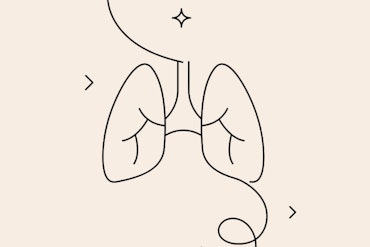Survey says… public “ignorant” to dementia
Despite dementia being a growing and prominent health concern both nationally and internationally, new research has revealed that the Australian public is “quite ignorant” about the condition, its causes, treatments and preventative measures.

Poor public understanding of dementia means people are missing out on better systems and services already available (Source: Shutterstock)
Currently there are more than 436,000 Australians living with dementia, with this number projected to increase to 590,000 in just 10 years, and almost 1.1 million by 2058 if no cure is found.
The research, conducted by Flinders University and published online in Gerontology and Geriatric Medicine, included a survey of 1,001 people which found that more than half (63.5 percent) could not spontaneously name any treatments that improved outcomes for people living with dementia.
It was also revealed in another study the public believes dementia is a normal and non-preventable part of ageing despite what lead researcher Miia Rahja says has been “decades” of public awareness campaigns about the potential for dementia prevention.
She says the Flinders University research well and truly highlighted that education for the public to address their ignorance of services and changes relating to dementia is needed.
“To enhance accessibility and uptake of programs and services, it is vital to understand the public’s current level of awareness and attitudes toward dementia,” Ms Rahja explains.
“The public should be made aware of how they can access these [prevention] programs, how the programs can help them reach their care needs and goals, the estimated costs involved, and the effects of accessing such programs.
“Thus, there is a need to understand what the public knows about dementia, including signs and symptoms, risk reduction, and treatment.”
Ms Rahja notes that in particular, the research shows that the public tend to underestimate the importance of cardiovascular health and regular exercise when it comes to the prevention of dementia, even though it has been proved the single most powerful influencer of brain health.
The research reports that when it comes to the efficacy of specific treatments, brain training was considered to be very likely to be effective by almost half of respondents (49.4 percent), with education for caregivers also rated by 46.2 percent, and a healthy diet, favoured by 43.4 percent.
Fellow lead researcher of ‘What does the general public understand about prevention and treatment of dementia? A systematic review of population-based surveys‘, Monica Cations says the outcomes of these studies is shocking.
“We were surprised to find that dementia literacy is still so poor, given how much effort has been put into improving understanding,” Ms Cations says.
“The view that dementia is a normal part of ageing with few treatment options is a demonstrated barrier to both preventative health behaviours and to help-seeking and diagnosis in the event that symptoms emerge.”
Dementia Australia Chief Executive Officer Maree McCabe says the organisation has also conducted its own survey recently, which found that 80 percent of respondents had heard of dementia and, of those a further three in four people were able to correctly identify basic facts about dementia.
Ms McCabe does note though, that despite this knowledge, it is concerning that four out of five people surveyed believe that others feel uncomfortable around people with dementia and two in three believe that individuals have a negative perception of people with dementia.
“When we explored this further in the survey, it really came down to people saying they just weren’t sure how to talk to someone with dementia. And there are still so many myths about dementia,” Ms McCabe explains.
“Although age is the biggest risk factor, it is important to note that dementia is not a normal part of ageing and most older people do not develop dementia.
“It is critical that there is increased awareness and understanding in the general public of dementia so that people living with dementia and their carers can continue to remain engaged in the activities that are important to them and live in an environment that supports their choices.”
She adds that greater education and awareness of dementia in the community benefits all who are impacted by the disease and says there are many sources of information about dementia that people can access – with the best starting point a call to the National Dementia Helpline (1800 100 500).
“Our Dementia Awareness Month in September has prompted an extraordinary response around the country,” Ms McCabe says.
“It is clear that more and more Australians do want to understand more about dementia and how they can support those living with the disease and their families and carers.”
Ms McCabe adds that while at this point there is “nothing definitive people can do to prevent dementia”, there are a number of things those interested in reducing their risk of dementia can do.
These include living a brain healthy lifestyle by:
- Looking after your heart
- Being physically active
- Mentally challenging your brain
- Following a healthy diet
- Not smoking or drinking to excess; and
- Being socially active
For more information about dementia, visit Dementia Australia online or call the National Dementia Helpline on 18000 100 500.























